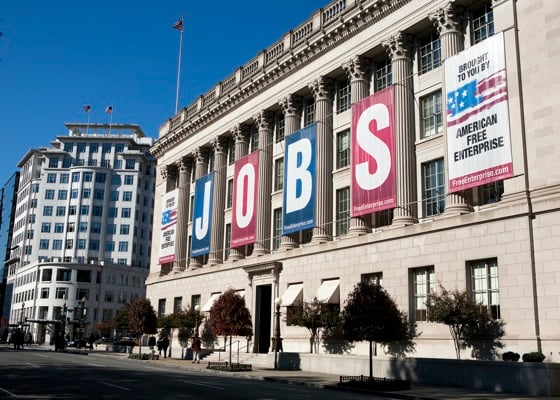Tightening job market will make it harder for companies to keep a lid on wages; there go the record profit margins
Companies are improving margins and generating profits as wage growth for the American worker lags behind the prices of goods and services.
The year-over-year change in the so-called core consumer price index, which excludes volatile food and fuel, has outpaced hourly earnings for the last four months. In January, average hourly earnings climbed 1.5 percent from a year earlier, while core inflation was up 2.3 percent.
“A lot of the outperformance of profits has been due to the fact that margins are expanding,” said Michael Feroli, chief U.S. economist at JPMorgan Chase & Co. in New York. “Firms have been able to keep prices intact even though labor costs have been declining.”
While benefiting the bottom line for businesses, the decline in inflation-adjusted wages bodes ill for the sustainability of economic growth as consumers may eventually be forced to cut back, Feroli said. Businesses have also been slow to redeploy their profits into new hiring.
“So far what you've had is the government has been able to step in and prop up household purchasing power by various cuts in payroll taxes, various increases in social benefits,” said Feroli. “That has sort of kept the whole thing going, but you might worry with real wages being hit spending is going to decline.”
Of the 394 companies in the Standard & Poor's 500 Index that have reported since Jan. 9, earnings for the quarter ended Dec. 31 increased 5.1 percent on average and beat analyst estimates by 3.2 percent. Some 70 percent of the companies have posted better-than-projected results.
Corporate profits in the U.S. reached a record $1.97 trillion in the third quarter of 2011, according to the most recent data from the Commerce Department. That's up 1.7 percent in the third quarter from the previous three months and 7.5 percent higher than the same period in 2010.
Upper Hand
“In regards to labor, we currently do not anticipate significant pressure for 2012 for both wages and salary,” Gregory Levin, chief financial officer at BJ's Restaurants Inc. (BJRI), said on a Feb. 16 conference call with analysts.
The Huntington Beach, California-based company, which owns and operates restaurants in California, Colorado, Oregon, Arizona, Nevada and Texas, said revenue increased 29 percent in the three months that ended Jan. 3 from the prior year, while net income rose 42 percent.
Corporate profits tend to rise early in a business cycle, and get squeezed once growth picks up and workers are able to negotiate wage increases adequate to keep pace with inflation. High unemployment reduces a worker's bargaining power.
The jobless rate fell to 8.3 percent in January, down from 9.1 percent a year earlier and the lowest level in three years. A broader measure of underemployment, including people who have given up searching for work and those employed part-time while seeking full-time work, was 15.1 percent in January.
Low-Rate Pledge
The Federal Reserve has pledged low interest rates until late 2014, citing in part the weakness of the job market.
Fed Chairman Ben S. Bernanke repeated the low-rate pledge after the Labor Department reported the January jobless rate and said the decline in the unemployment rate may mask weakness in the labor market.
“It is very important to look not just at the unemployment rate, which reflects only people who are actively seeking work,” Bernanke said in response to a question during testimony in Congress. “There are also a lot of people who are either out of the labor force because they don't think they can find work” or who have taken part-time jobs.
The central bank said in January that it currently estimates maximum employment to be between 5.2 percent and 6 percent.
“If you continue to get the unemployment rate down, workers may be able to more readily demand higher wages which will force some of that profit back over to the household sector,” said JPMorgan's Feroli.
Employment growth will put more money into the pockets of consumers, said Chris Rupkey, chief financial economist at Bank of Tokyo-Mitsubishi UFJ Ltd.
“Once the jobs creation begins again, those new people have paychecks, and that's what powers the economy forward,” Rupkey said today.
--Bloomberg News--







